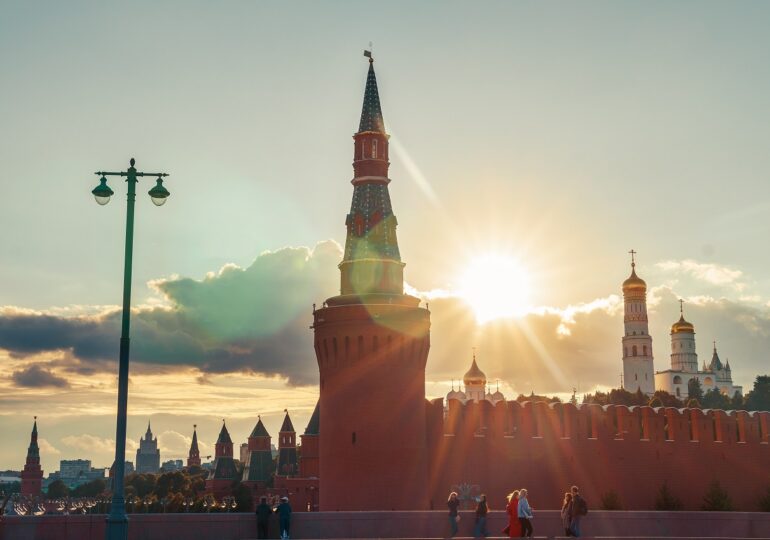Russia intends to exert long-term regional dominance by establishing a trade bloc to counter the European Union, but currently faces a significant obstacle, according to a Kremlin report.
Moscow aims to expand its influence by creating a strong bloc to counter the commercial power of the European Union, but this objective has been thwarted by the war in Ukraine, as indicated in a report presented at a strategy meeting led by Russian Prime Minister Mikhail Mishustin in April last year. The meeting was attended by high-ranking officials from the government, heads of some of Russia’s largest companies, as well as key figures such as the far-right philosopher Alexander Dugin.
The report obtained by Financial Times (FT) also mentions that Western sanctions have driven former allies of Russia away from Kremlin's control.
The American daily did not disclose how it obtained the document.
Kremlin Dreams of Leading a Macroregion
According to FT, Russia plans to create a Eurasian commercial "macroregion" to regain global influence. This bloc could also connect with the Global South, providing both sides access to valuable raw materials, ensuring the development of financial ties and transportation.
The bloc built on an ideological basis would share "a vision of the world… where we write rules for the new world (and have) our own sanction policy," as stated in the report.
In the Kremlin's vision, this structure will ultimately counter other international economic blocs, including those of the USA, EU, and China, a Moscow ally.
How Moscow Became Blackmailed by Former Allies
The report acknowledges that Russia is losing influence in the post-Soviet space, partly due to Western sanctions imposed on it. The West has pushed and motivated nations in Central Asia - where most were once part of the USSR - to distance themselves from Russian influence.
According to the document, means of distancing from Russia's influence have included access to global markets, transport corridors, and supply chains that bypass Moscow, to encourage these countries to adhere to Western sanctions.
Moreover, these countries have used sanctions as leverage to demand better conditions from Moscow when helping it circumvent sanctions.
Meanwhile, Russia's allies have benefited from the sanctions by removing Russian businesses from their jurisdiction, taking control of import and export flows, and relocating production from Russia. Central Asian countries have also demanded additional commissions to offset the risks of violating sanctions, the report mentions.
Due to Western sanctions, exerting influence over those nations would be challenging, even if Moscow's invasion of Ukraine resulted in a victory for Russia.
However, the Kremlin has sought to maintain its influence over the post-Soviet space in Central Asia by appealing to common history and acting as if it respects these countries' independence.
It is not clear if Russia has moved to implement these ideas in its relationship with countries in its sphere of influence, FT writes, but the unexpectedly defensive way in which the Kremlin handled the crisis caused by the downing of the Azerbaijan Airlines plane suggests this.
Belarus, the Vassal, Moscow's Sole Success
The report also presents Russia's current areas of influence, noting "systemic issues" in the Eurasian Economic Union, a bloc that includes Belarus, Armenia, Kazakhstan, and Kyrgyzstan, highlighted by the preference for Western payment systems when Russia's banking access was restricted.
Neighboring and vassal Belarus is mentioned as one of the few examples of success in Moscow's ongoing efforts - an alliance partially fueled by Western isolation of Minsk.
Armenia, one of Moscow's former allies, announced its withdrawal from Moscow-led military alliance, the Collective Security Treaty Organization (CSTO), in June 2024. This year, Armenia signed a strategic partnership agreement with the United States, with clauses for enhancing bilateral cooperation in economic, defense, and social development spheres.
Kazakhstan also condemned Russia's invasion of Ukraine, another sign of Russia's declining influence, as mentioned by Financial Times.
T.D.

